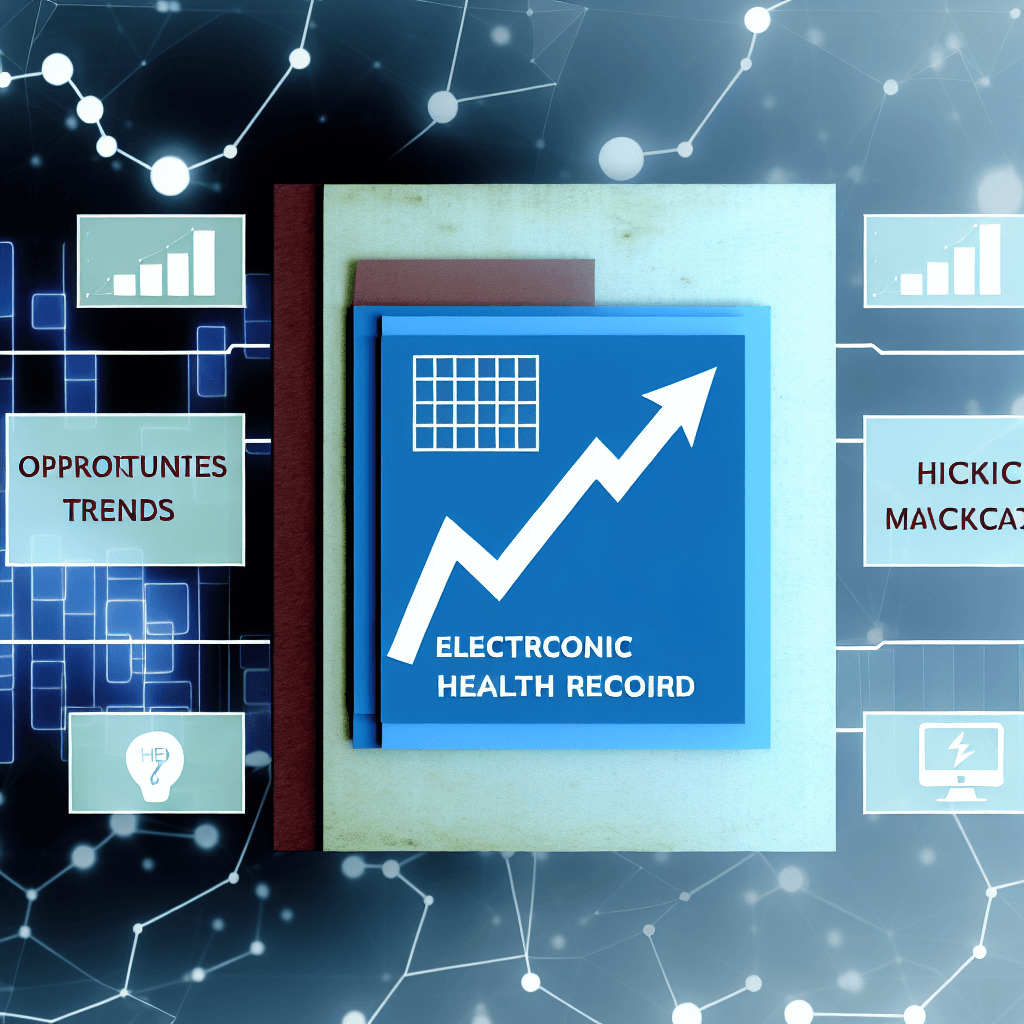Explore the Electronic Health Record market size, trends, opportunities, and forecasts in our comprehensive analysis.
Electronic Health Record Market Size, Trends, Opportunities & Forecast

Table of Contents
- Electronic Health Record Market Size, Trends, Opportunities & Forecast
- Understanding Electronic Health Records (EHR)
- Current Market Size and Growth Projections
- Key Trends Influencing the EHR Market
- Opportunities in the EHR Market
- Challenges Facing the EHR Market
- Case Studies
- Forecast for the Future
- Conclusion
Electronic Health Record Market Size, Trends, Opportunities & Forecast

The Electronic Health Record (EHR) market has been a critical component in the transformation of healthcare services worldwide. By digitizing health records, EHR systems have revolutionized how information is shared and managed across healthcare providers, enhancing the efficiency, safety, and quality of care. This article delves into the current market size, emerging trends, significant opportunities, and forecasts that outline the future trajectory of the EHR market.
Understanding Electronic Health Records (EHR)
Electronic Health Records are digital versions of patients’ paper charts. They are real-time, patient-centered records that make information available instantly and securely to authorized users. EHRs contain the medical and treatment histories of patients and improve the ability to diagnose diseases and reduce—even prevent—medical errors, improving patient outcomes.
Current Market Size and Growth Projections
The global EHR market has shown substantial growth over the past decade. According to a report by Grand View Research, the global EHR market size was valued at approximately USD 27.6 billion in 2021 and is expected to expand at a compound annual growth rate (CAGR) of 3.7% from 2022 to 2030. This growth is attributed to the increasing adoption of EHR systems in both developed and developing countries, spurred by government initiatives and the rising need for an efficient healthcare system.
Key Trends Influencing the EHR Market
- Integration of Artificial Intelligence (AI): AI is increasingly being integrated into EHR systems to enhance functionalities such as predictive analytics, patient data analysis, and decision support systems.
- Cloud-based Solutions: There is a growing shift towards cloud-based EHR solutions due to their cost-effectiveness, scalability, and accessibility.
- Increased Focus on Patient-Centric Care: EHR systems are evolving to be more patient-focused, providing tools that encourage patient engagement and self-management.
- Interoperability: There is an increasing emphasis on the interoperability of EHR systems to ensure seamless communication and data exchange between different healthcare providers.
Opportunities in the EHR Market
The expansion of the EHR market presents numerous opportunities for healthcare providers, technology developers, and policymakers. Some of the most significant opportunities include:
- Expansion in Emerging Markets: Developing countries present a significant opportunity for the growth of EHR systems due to the ongoing digital transformation in healthcare.
- Advanced Analytics Capabilities: The integration of advanced analytics and machine learning techniques can enhance the capabilities of EHR systems, leading to better health outcomes.
- Customization and Specialization: There is a growing demand for specialized EHR systems tailored to the specific needs of various healthcare specialties such as oncology, pediatrics, and cardiology.
Challenges Facing the EHR Market
Despite the opportunities, there are several challenges that the EHR market faces:
- Data Privacy and Security: Protecting patient data remains a significant concern with the adoption of EHR systems.
- High Initial Costs: The initial cost of implementing EHR systems can be prohibitive for small to medium-sized healthcare providers.
- Resistance to Change: There is often resistance from healthcare providers due to the complexity and time required to transition to EHR systems.
Case Studies
Several case studies highlight the successful implementation and benefits of EHR systems:
- Kaiser Permanente: One of the largest managed care organizations in the U.S., Kaiser Permanente has effectively utilized EHRs to enhance patient outcomes and operational efficiency.
- Estonia’s Digital Health Initiative: Estonia has one of the most advanced e-health systems in the world, with over 95% of the data generated by hospitals and doctors being digitized.
Forecast for the Future
Looking ahead, the EHR market is expected to continue growing, driven by technological advancements and increasing global healthcare needs. Innovations such as telemedicine, mobile health applications, and further integration of AI will likely shape the future of EHRs.
Conclusion
The EHR market is poised for continued growth and transformation, offering substantial benefits to healthcare systems globally. By understanding the current trends, opportunities, and challenges, stakeholders can better navigate the landscape and leverage EHR systems to enhance healthcare delivery and patient outcomes. As technology evolves, so too will the capabilities and impact of EHRs in the global healthcare industry.








